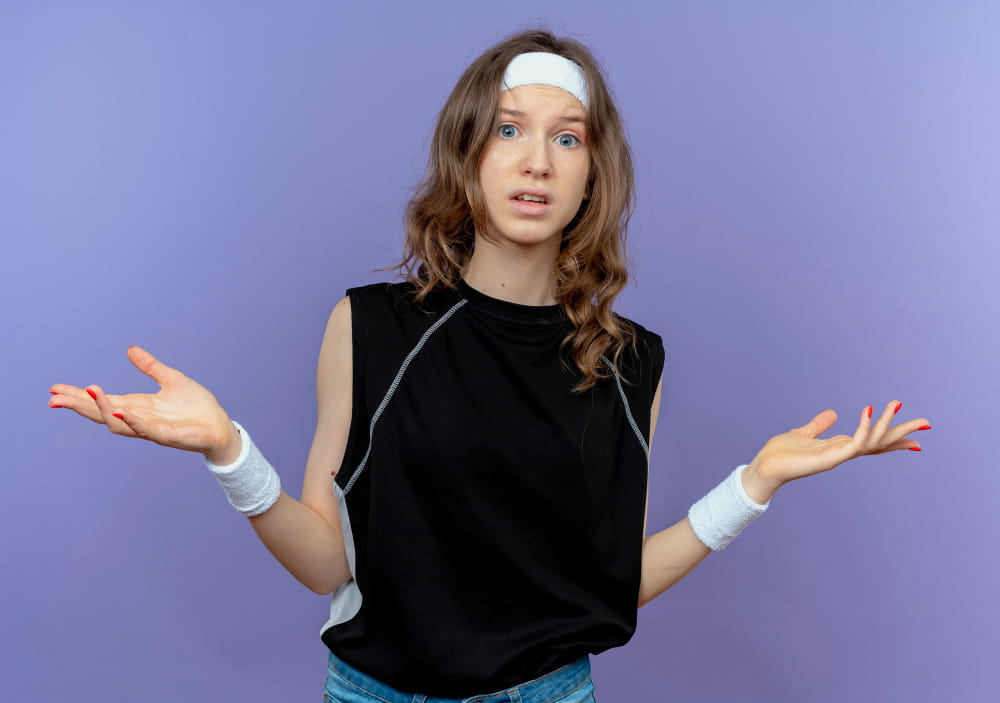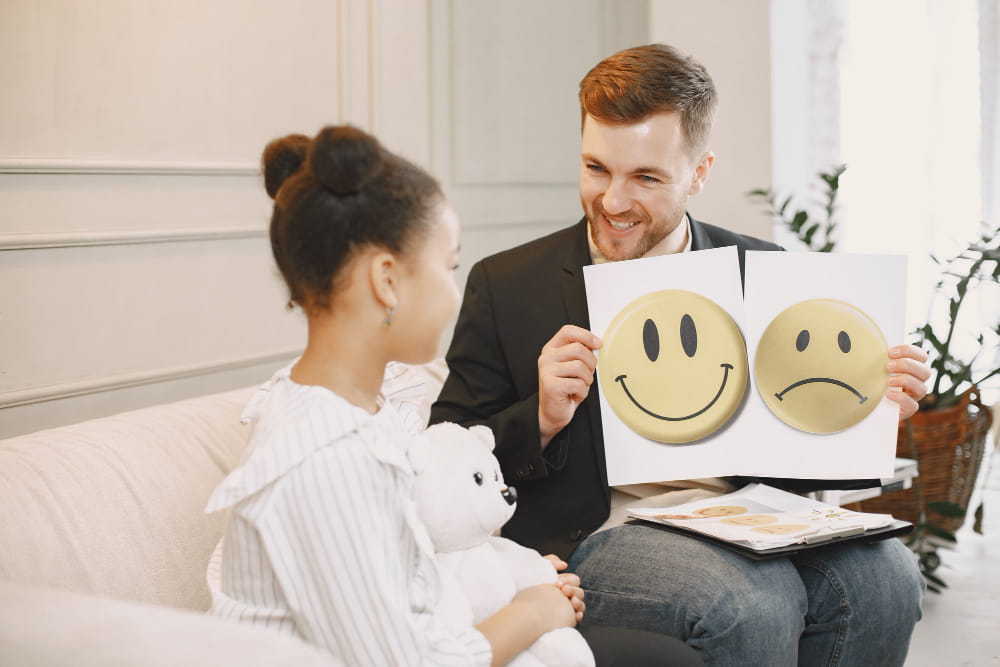It’s pretty common for people to wonder about the connection between ADHD and anxiety. Many folks experience symptoms that seem to overlap, making it tricky to figure out what’s going on. This article breaks down how these two conditions can affect each other and what that means for daily life. We’ll look at why they often show up together and how treatment can help manage both.
Key Takeaways
- ADHD and anxiety can share similar signs, which sometimes makes diagnosis difficult.
- The way the brain develops in ADHD might influence how someone handles emotions, potentially leading to anxiety.
- When ADHD and anxiety happen at the same time, it can really impact day-to-day activities, but there are treatments that can help manage both conditions.
Understanding the Overlap Between ADHD and Anxiety

It’s pretty common for people to wonder about the connection between ADHD and anxiety. They often show up together, and figuring out what’s what can be tricky. For instance, someone with ADHD might have trouble focusing, which can lead to worry about falling behind at school or work. This worry can then feel a lot like anxiety. Also, the constant feeling of being overwhelmed or restless that can come with ADHD might be mistaken for or contribute to anxious feelings. It’s a bit of a tangled situation, and understanding this overlap is key for getting the right help. Many people in states like Texas, Washington, California, Iowa, and New York find that addressing both conditions at once makes a big difference. If you’re trying to sort this out, reaching out for professional guidance is a good step. You can book an appointment to discuss your specific concerns.
Navigating Co-occurring ADHD and Anxiety

When ADHD and anxiety show up together, it can make daily life feel like a constant juggling act. The impulsivity and focus issues from ADHD can make it harder to stick to routines, which are often helpful for managing anxiety. Conversely, the worry and restlessness of anxiety can worsen ADHD symptoms, making it even tougher to concentrate or stay organized. It’s a cycle that can feel overwhelming, but understanding this connection is the first step toward finding effective ways to manage both. For those in Texas, Washington, California, Iowa, and New York, Polished Mind Psychiatry recognizes the unique challenges faced by individuals with co-occurring conditions.
Impact on Daily Functioning
The combined effects of ADHD and anxiety can touch almost every part of a person’s life. At work or school, tasks might feel impossible to start or finish. Social interactions can become strained due to difficulties with attention or heightened self-consciousness from anxiety. Even simple things like managing household chores or keeping appointments can become a significant hurdle. This can lead to feelings of frustration, low self-esteem, and a sense of being constantly behind.
Treatment Approaches for Combined Conditions
Treating both ADHD and anxiety often requires a tailored approach. Medication can be a part of the plan, with doctors carefully selecting options that address both conditions without making one worse. Therapy is also key. Cognitive Behavioral Therapy (CBT) can help individuals develop strategies to manage anxious thoughts and behaviors, while also teaching skills for better organization and time management related to ADHD.
Some effective strategies include:
- Structuring unstructured time: Creating predictable routines can reduce anxiety and provide a framework for managing ADHD-related challenges. This might involve setting specific times for tasks, meals, and relaxation.
- Engaging in regular exercise: Physical activity is known to help reduce anxiety symptoms and can improve focus and attention for those with ADHD. Finding an activity you enjoy makes it easier to stick with.
- Maintaining healthy habits: Consistent sleep schedules, balanced nutrition, and limiting caffeine can have a positive impact on both mood and concentration.
- Breaking down tasks: Large projects can feel overwhelming. Dividing them into smaller, manageable steps can make them seem less daunting and easier to complete, reducing both anxiety and procrastination.
- Organizing physical spaces: A cluttered environment can contribute to feelings of overwhelm and difficulty focusing. Simple organization strategies, like having a designated spot for keys or important papers, can make a difference.
It’s important to remember that finding the right combination of treatments takes time and patience. If you’re struggling with the combined effects of ADHD and anxiety, seeking professional help is a positive step. You can explore options and find support by booking an appointment.
Dealing with both ADHD and anxiety at the same time can be tough. It’s like having two different challenges that can make everyday life feel overwhelming. But you don’t have to go through it alone. We offer support and understanding to help you manage these conditions. Learn more about how we can help you find balance and feel better. Visit our website today to discover your path to a calmer, more focused you.
Moving Forward with Understanding
So, we’ve talked about how ADHD and anxiety can sometimes feel like they’re tangled together. It’s not always easy to tell them apart, or even to know which one is causing what. But understanding that they often show up together is a big step. It means that if you’re dealing with one, it’s worth checking in about the other. Getting the right support, whether that’s therapy, medication, or other strategies, can make a real difference. Polished Mind Psychiatry is here to help you figure things out and find a path forward that works for you. If you’re ready to explore your options and get personalized care, consider booking an appointment with us. We’re licensed in Texas, Washington, California, Iowa, and New York, and we offer telehealth to make things easier. You can book your appointment right here: Polished Mind Psychiatry
Frequently Asked Questions
How can someone tell if they have ADHD and anxiety, or just one of them?
Sometimes, it’s tricky to tell if someone has ADHD, anxiety, or both. This is because some signs can look alike. For example, trouble focusing or feeling restless can happen with ADHD, but also with anxiety. People with ADHD might worry a lot about not finishing tasks, which can feel like anxiety. Doctors carefully look at all the symptoms and how long they’ve been happening to figure out what’s going on.
What happens when someone has both ADHD and anxiety?
When someone has both ADHD and anxiety, it can make everyday life harder. For instance, feeling anxious might make it even tougher to concentrate, which is already a challenge with ADHD. This can affect school, work, and relationships. It’s like trying to juggle too many balls at once, and some might drop.
Are there treatments available for people with both ADHD and anxiety?
Yes, there are ways to help! Treatment often involves a mix of things. Therapy, like Cognitive Behavioral Therapy (CBT), can teach skills to manage both ADHD and anxiety. Sometimes, medication can help too. At Polished Mind Psychiatry, we offer personalized care, including telehealth options, to help you find the right approach. Our goal is to support you in feeling better and managing your symptoms effectively.




